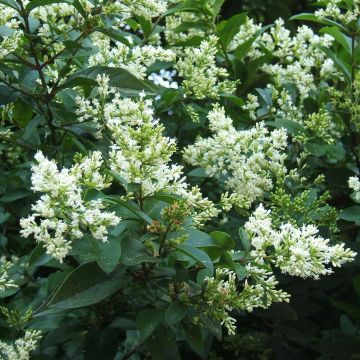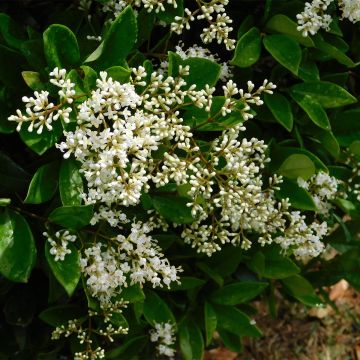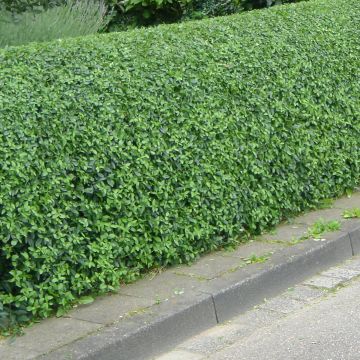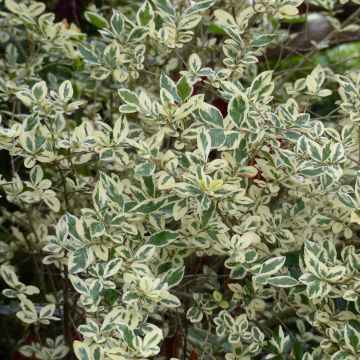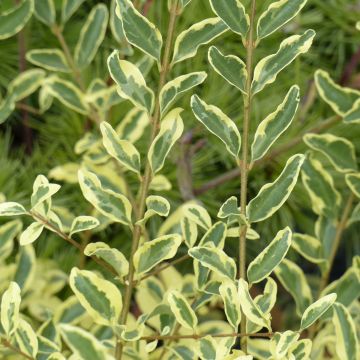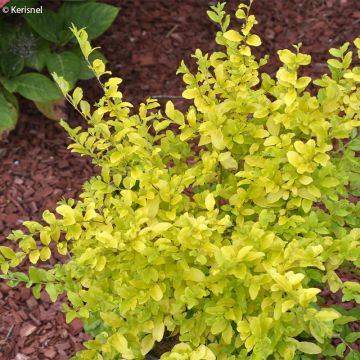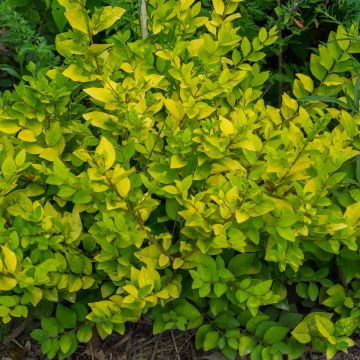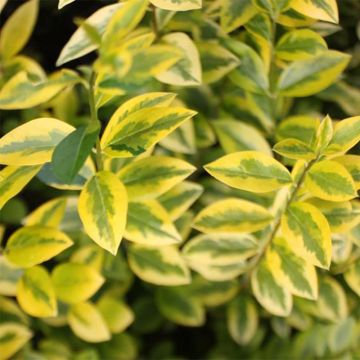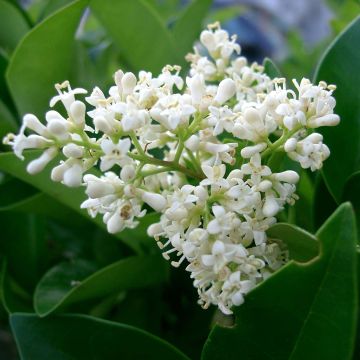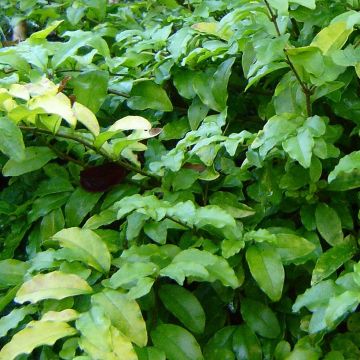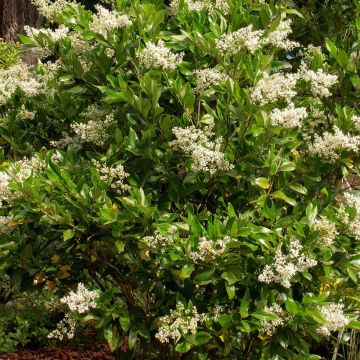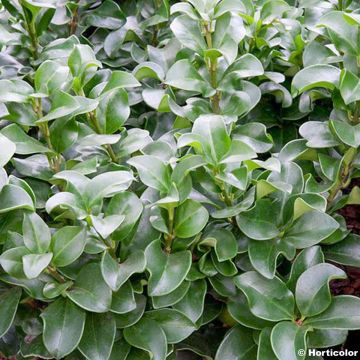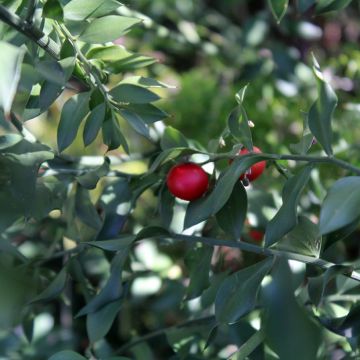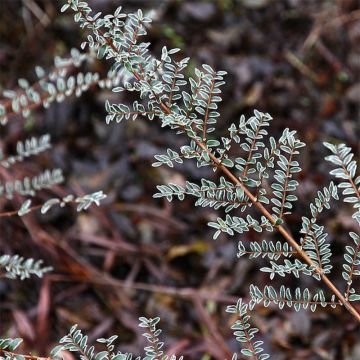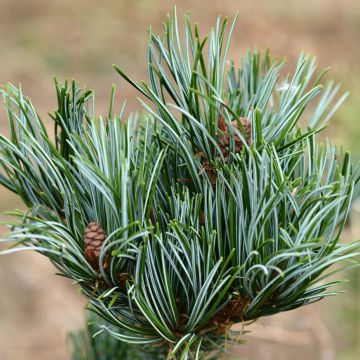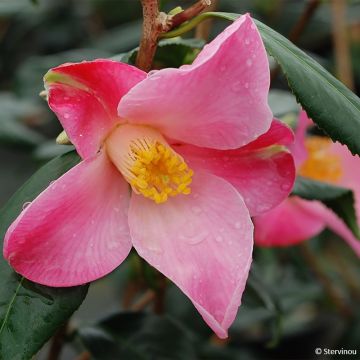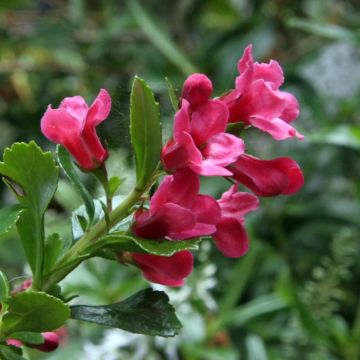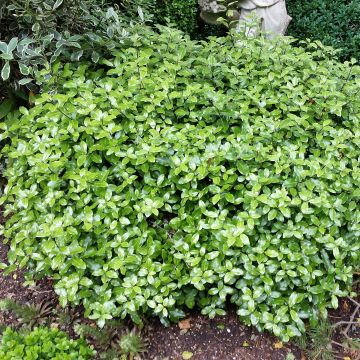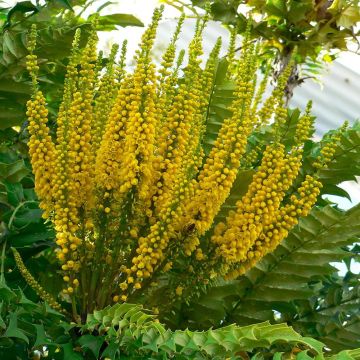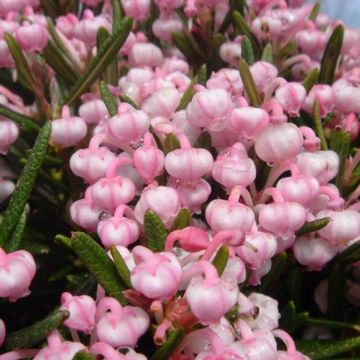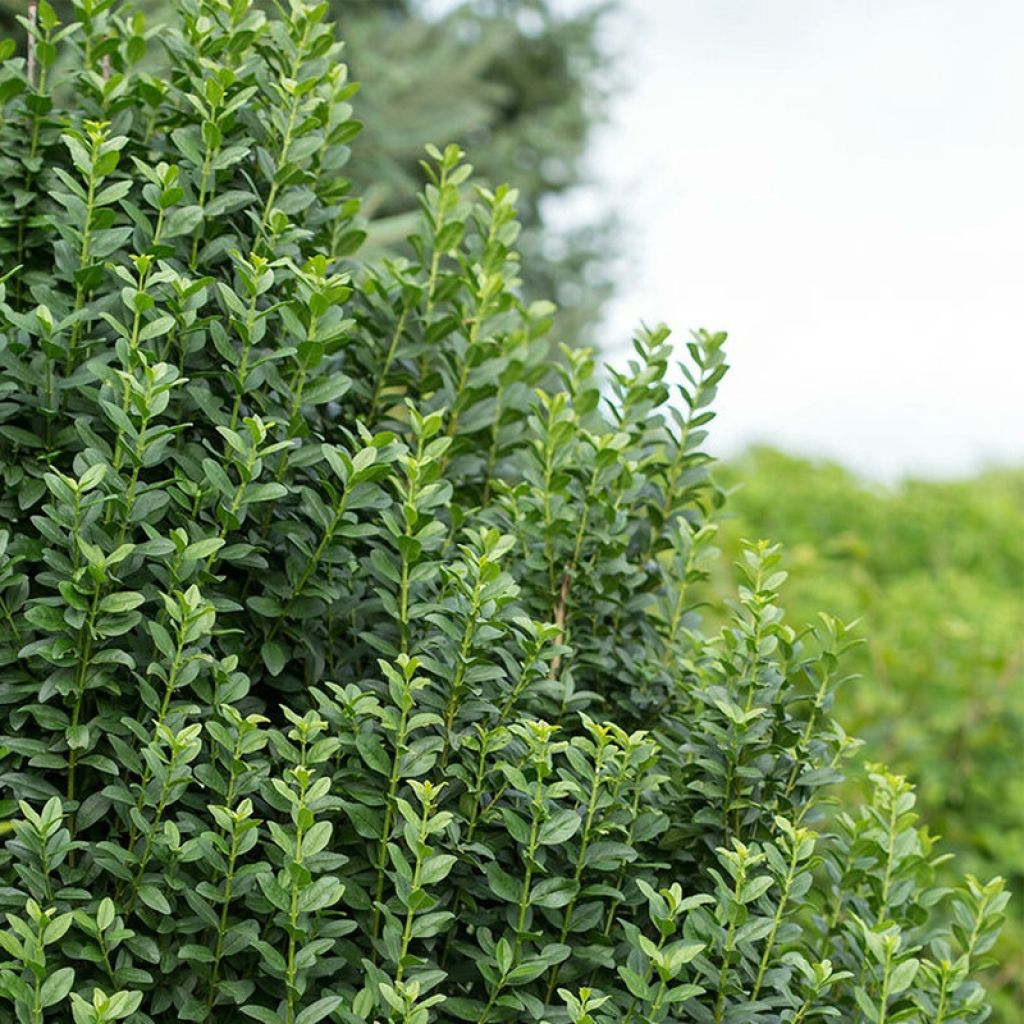

Ligustrum vulgare Straight Talk - Troène commun
Ligustrum vulgare Straight Talk - Common Privet
Ligustrum vulgare Straight Talk
Common Privet, European Privet, Prim, Prim-cut
I ordered 5 young plants. They were planted at the end of September (indicated as optimal). The soil and temperature conditions are rather optimal in our region (specific research area on the shores of Lake Bourget). Unfortunately, all of my plants also lost their leaves. Three of them have regained some leaves, two remained naked... We will observe in the spring. I will contact you if they unfortunately died... I have ordered 3 times now, with a total of about 25 plants and trees, and normally everything goes well. Thank you for your response.
Ira, 04/12/2023
Why not try an alternative variety in stock?
View all →This plant carries a 24 months recovery warranty
More information
We guarantee the quality of our plants for a full growing cycle, and will replace at our expense any plant that fails to recover under normal climatic and planting conditions.
From €5.90 for pickup delivery and €6.90 for home delivery
Express home delivery from €8.90.
Delivery to Corse prohibited: UE law prohibits the import of this plant from mainland France to Corse as part of the fight against Xylella fastidiosa. Please accept our sincere apologies.
More information
Does this plant fit my garden?
Set up your Plantfit profile →
Description
The Ligustrum vulgare 'Straight Talk' is a beautiful variety of common privet, distinguished by a particularly narrow and erect habit. In late spring, it produces small, highly fragrant white flowers. Its tough, dark green, evergreen foliage ensures a year-round presence. Very adaptable, it thrives in all soils as long as they are not too acidic or too dry. Ideal even in small gardens, as a hedge, as a standalone plant, or among other bushes.
The 'Straight Talk' common privet belongs to the Oleaceae family, which includes diverse plants such as osmanthus, the famous forsythias, ash trees, and... the olive tree. This species, very common in woodlands throughout Europe, is also widely used as a hedge due to its fast growth and beautiful small, tough, dark green, ovate, evergreen foliage. Between May and July, the bush is covered in white flowers highly attractive to pollinators. It should be noted that its fragrance, somewhat heavy, is not always appreciated by everyone. Although it tolerates shade, the flowering of the privet is more abundant in the sun. In late summer, the flowers give rise to small black fruits, which are also useful to wildlife as birds relish them. Young shoots are sometimes used in basketry, and a black dye was formerly extracted from its crushed fruits.
The 'Straight Talk' variety has a particularly narrow (fastigiate) habit, with slender, vertical branches. Under favorable conditions, it can reach 3 m (10 ft) in height, but will not exceed 60 cm (2 ft) in width, allowing it to be inserted among other shrubs, as well as in smaller gardens as a hedge plant. Its name is a play-on-words: in English, 'straight talk' does indeed mean 'frank speech', but 'straight' can also mean 'straightforward'!
The 'Straight Talk' privet is very adaptable: like all privets, it tolerates frequent pruning very well. If you want to maintain a neatly trimmed hedge, it is generally necessary to prune it twice a year (in spring and at the end of summer, although this variety will mainly require pruning for height). It is not afraid of temporarily waterlogged soils or coastal areas, nor does it mind limestone. However, avoid very acidic, shallow, and very dry soils, where it will grow much less well. Its persistent leaves (except during severe frost) also make it an excellent privacy screen and windbreak. It can be useful to prune it quite low initially to densify its branching. Its rather shallow and drying root system implies using ground cover plants that tolerate dry conditions at its base, such as 'Froehnleiten' barrenwort or periwinkle, for example.
It will be perfect in rural designs, but also in more sophisticated settings thanks to its remarkable architecture. For example, you can associate it with other small columnar plants, such as 'Ivory Tower' yew or 'Fastigiata' crenate holly for a very graphic scene, but also with round and compact shrubs for a contrast of shapes, such as 'Tor' birch-leaved spirea, 'Admiration' barberry, or even 'Choisya White Dazzler'.
Report an error about the product description
Ligustrum vulgare Straight Talk - Common Privet in pictures
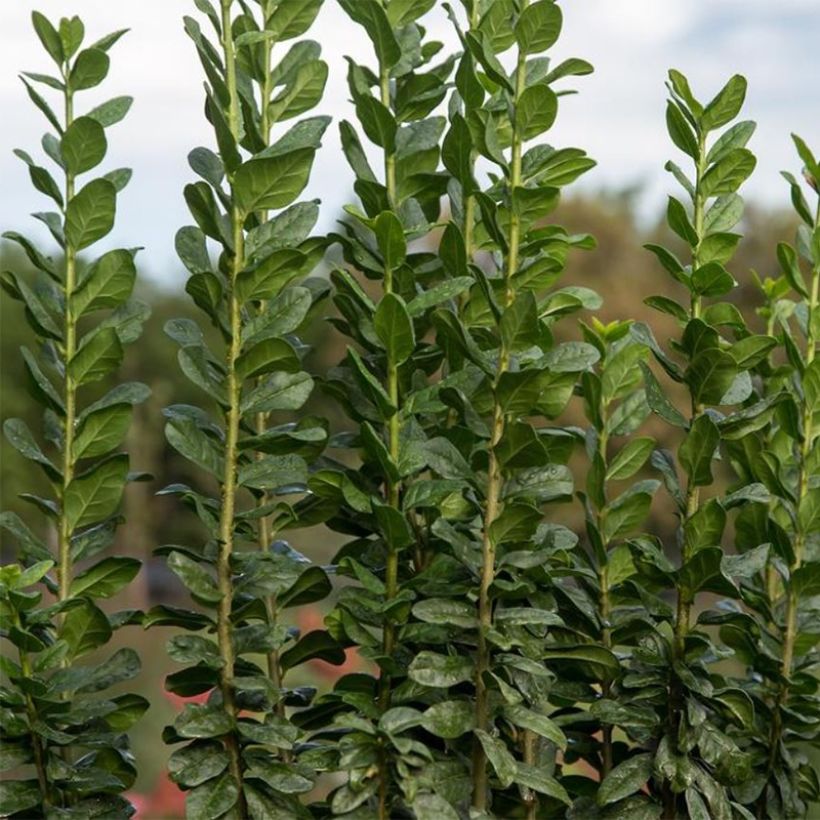

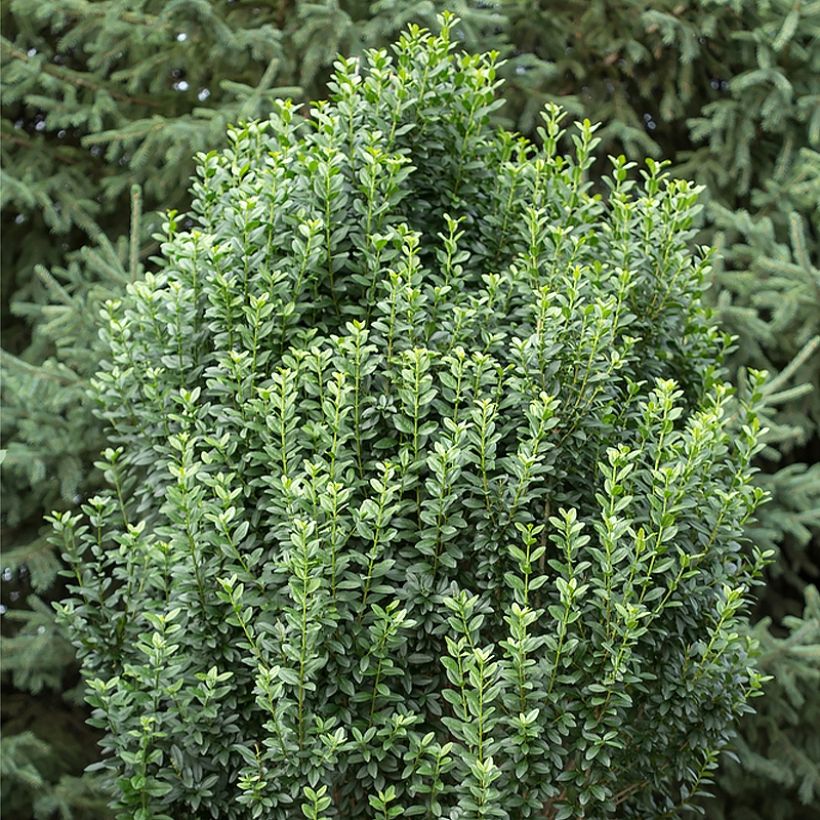

Plant habit
Flowering
Foliage
Botanical data
Ligustrum
vulgare
Straight Talk
Oleaceae
Common Privet, European Privet, Prim, Prim-cut
Cultivar or hybrid
Other Ligustrum - Privet
Planting and care
Very undemanding, the Ligustrum vulgare is satisfied with any ordinary soil (even limestone and clay), not too dry, and a sunny or semi-shaded exposure. It tolerates occasionally waterlogged soils and can grow in shade, although it will be less floriferous. Privet does not like excessively acidic and poor soils. Very hardy, it withstands temperatures down to -17°C (1.4 °F) and below. It has good tolerance to sea spray and can be planted by the seaside. Avoid planting it in arid conditions, in shallow and dry soil during summer. During planting in autumn or spring, cut back the plant to 40 cm (1 ft 4") from the ground to obtain dense branching. For trimmed hedges or topiaries, due to the rapid growth of this privet, pruning is necessary twice a year: in spring (April-May) and at the end of summer (August-September), by lightly cutting back the branches to allow the bush to branch well. It should be noted that privet does not flower or only very little if pruned. For freely growing isolated shrubs, pruning is done in spring and consists of removing dead wood to maintain a beautiful habit. Possible diseases and parasites: aphids, thrips, powdery mildew, scaly insects.
Planting period
Intended location
Care
-
, onOrder confirmed
Reply from on Promesse de fleurs
Evergreen shrubs
Haven't found what you were looking for?
Hardiness is the lowest winter temperature a plant can endure without suffering serious damage or even dying. However, hardiness is affected by location (a sheltered area, such as a patio), protection (winter cover) and soil type (hardiness is improved by well-drained soil).

Photo Sharing Terms & Conditions
In order to encourage gardeners to interact and share their experiences, Promesse de fleurs offers various media enabling content to be uploaded onto its Site - in particular via the ‘Photo sharing’ module.
The User agrees to refrain from:
- Posting any content that is illegal, prejudicial, insulting, racist, inciteful to hatred, revisionist, contrary to public decency, that infringes on privacy or on the privacy rights of third parties, in particular the publicity rights of persons and goods, intellectual property rights, or the right to privacy.
- Submitting content on behalf of a third party;
- Impersonate the identity of a third party and/or publish any personal information about a third party;
In general, the User undertakes to refrain from any unethical behaviour.
All Content (in particular text, comments, files, images, photos, videos, creative works, etc.), which may be subject to property or intellectual property rights, image or other private rights, shall remain the property of the User, subject to the limited rights granted by the terms of the licence granted by Promesse de fleurs as stated below. Users are at liberty to publish or not to publish such Content on the Site, notably via the ‘Photo Sharing’ facility, and accept that this Content shall be made public and freely accessible, notably on the Internet.
Users further acknowledge, undertake to have ,and guarantee that they hold all necessary rights and permissions to publish such material on the Site, in particular with regard to the legislation in force pertaining to any privacy, property, intellectual property, image, or contractual rights, or rights of any other nature. By publishing such Content on the Site, Users acknowledge accepting full liability as publishers of the Content within the meaning of the law, and grant Promesse de fleurs, free of charge, an inclusive, worldwide licence for the said Content for the entire duration of its publication, including all reproduction, representation, up/downloading, displaying, performing, transmission, and storage rights.
Users also grant permission for their name to be linked to the Content and accept that this link may not always be made available.
By engaging in posting material, Users consent to their Content becoming automatically accessible on the Internet, in particular on other sites and/or blogs and/or web pages of the Promesse de fleurs site, including in particular social pages and the Promesse de fleurs catalogue.
Users may secure the removal of entrusted content free of charge by issuing a simple request via our contact form.
The flowering period indicated on our website applies to countries and regions located in USDA zone 8 (France, the United Kingdom, Ireland, the Netherlands, etc.)
It will vary according to where you live:
- In zones 9 to 10 (Italy, Spain, Greece, etc.), flowering will occur about 2 to 4 weeks earlier.
- In zones 6 to 7 (Germany, Poland, Slovenia, and lower mountainous regions), flowering will be delayed by 2 to 3 weeks.
- In zone 5 (Central Europe, Scandinavia), blooming will be delayed by 3 to 5 weeks.
In temperate climates, pruning of spring-flowering shrubs (forsythia, spireas, etc.) should be done just after flowering.
Pruning of summer-flowering shrubs (Indian Lilac, Perovskia, etc.) can be done in winter or spring.
In cold regions as well as with frost-sensitive plants, avoid pruning too early when severe frosts may still occur.
The planting period indicated on our website applies to countries and regions located in USDA zone 8 (France, United Kingdom, Ireland, Netherlands).
It will vary according to where you live:
- In Mediterranean zones (Marseille, Madrid, Milan, etc.), autumn and winter are the best planting periods.
- In continental zones (Strasbourg, Munich, Vienna, etc.), delay planting by 2 to 3 weeks in spring and bring it forward by 2 to 4 weeks in autumn.
- In mountainous regions (the Alps, Pyrenees, Carpathians, etc.), it is best to plant in late spring (May-June) or late summer (August-September).
The harvesting period indicated on our website applies to countries and regions in USDA zone 8 (France, England, Ireland, the Netherlands).
In colder areas (Scandinavia, Poland, Austria...) fruit and vegetable harvests are likely to be delayed by 3-4 weeks.
In warmer areas (Italy, Spain, Greece, etc.), harvesting will probably take place earlier, depending on weather conditions.
The sowing periods indicated on our website apply to countries and regions within USDA Zone 8 (France, UK, Ireland, Netherlands).
In colder areas (Scandinavia, Poland, Austria...), delay any outdoor sowing by 3-4 weeks, or sow under glass.
In warmer climes (Italy, Spain, Greece, etc.), bring outdoor sowing forward by a few weeks.


































